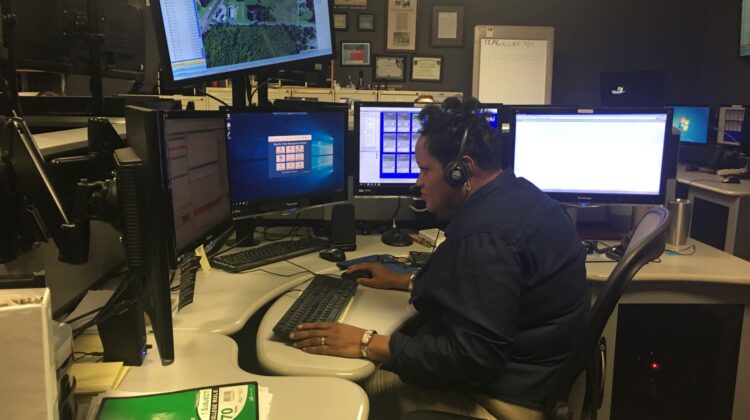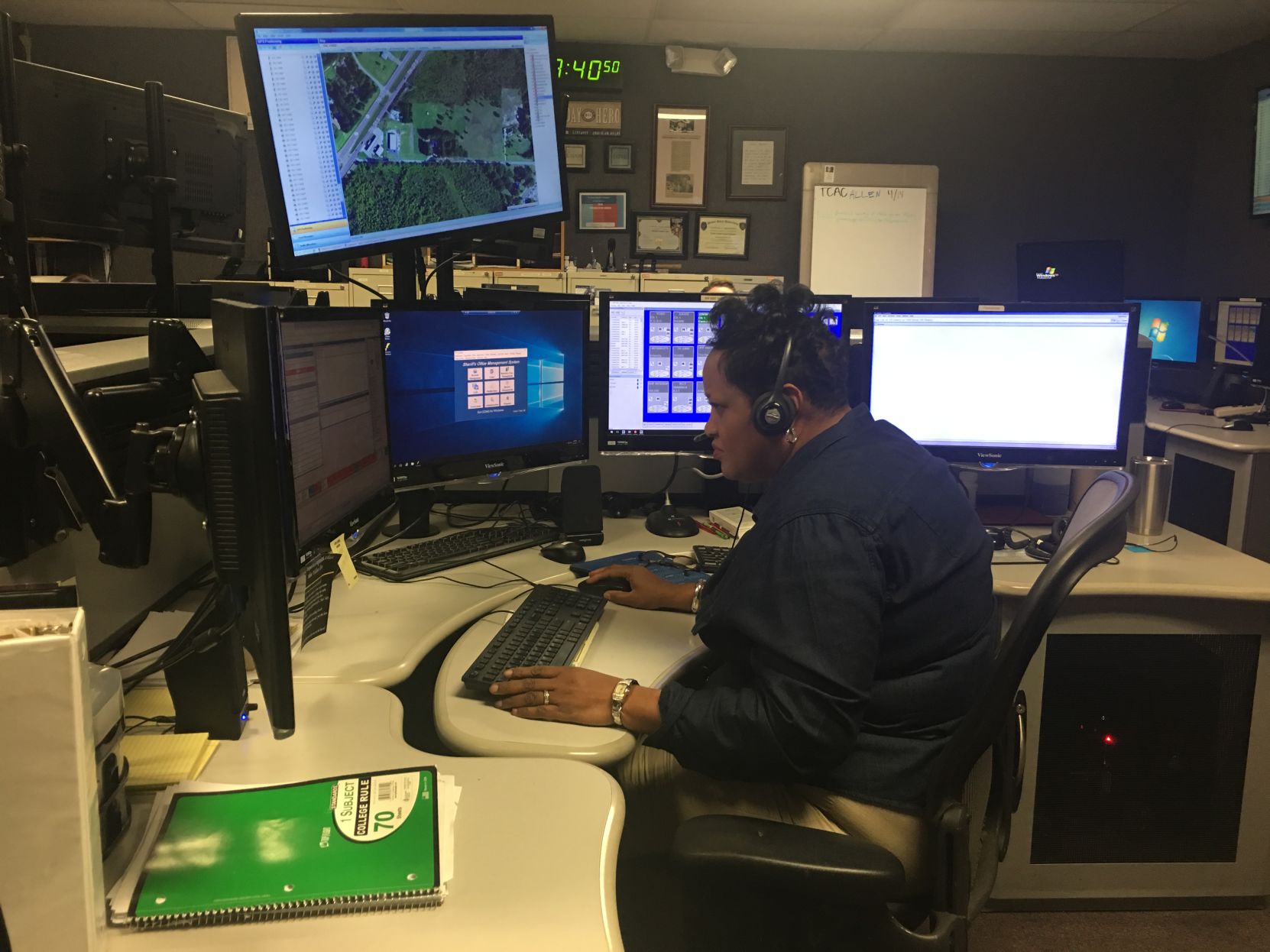

It’s 3:16 p.m. and James “Shugs” Stroud is simultaneously logging the time a deputy has gone back in to service, checking the details of a vehicle registration for another deputy on a traffic stop and taking notes from a caller who wants a previous complaint dismissed.
A minute later he answers a 911 call from a 62-year-old woman who’s in a lot of pain and can’t make it to the doctor’s office.
Next to him, dispatchers Tanya Thomas, a shift supervisor, and Delene Burns field non-stop calls about someone who is out of control on Kellum Lane. Thomas asks if the complainant’s brother, about whom she’s calling, has any weapons or is on any drugs. Burns is talking to the brother’s therapist on another line.
It’s enough to make the average person’s head spin, or send them into sensory overload, but it’s just a normal day on second shift, and only part of the job, for these dispatchers.
“We’re the behind the scenes folks,” Thomas says of dispatchers. “We’re the people you talk to but never see.”
Tipton County Central Dispatch, or E-911, employs the people who answer the phone and send first responders to emergencies. And sometimes non-emergencies, because that’s also their job. The department employs three full-time dispatchers on three shifts plus several other personnel.
It’s difficult to list their comprehensive set of duties and daily tasks in addition to dispatching first responders – they do everything from compiling reports for different agencies to giving officers directions.
And then there are the times children with inactive phones dial 911 five dozen times in a day or people call 911 for non-emergencies (please call 475-4300 instead). It’s a big problem, they all agree.
“People don’t realize that a phone can still call 911 whether it has service or not,” said Odessa Bernard, the NCIC/TBI Terminal supervisor who’s been a dispatcher since 1978.
Bernard has plenty of stories – some funny, some sad – and loves her co-workers, like Anita Pifer, a woman she calls her rock.
Pifer, married to Brighton Captain Craig Pifer, said being a dispatcher and married to an officer is a different level, but she has to keep her emotions in check.
The first line in emergency services, it takes a special person to be a dispatcher, Pifer said.
And special is exactly the word for her co-workers.
A Covington native, Thomas spent several years working as a dispatcher in South Carolina. This is her 16th year in the field.
“It’s stressful,” Thomas says of the job. “We take the initial calls, relay (information) to the officers and then you never know the outcome.”
And Stroud, whose wife Becky works as a dispatcher on midnights, has been with Central Dispatch for seven years. As a couple, they have learned to do what so many first responders do.
“We learned how to leave the job here,” he says. “We leave it here and we don’t talk about it.”
He barely finishes the sentence before more calls begin coming in.
There’s a lot encompassed in the job, but dispatching first responders to Tipton County residents and having everyone return home safely is their highest priority. Of that they are adamant.
“That’s our goal when we sit in these chairs,” said Thomas. “Everyone goes home.”






Leave a Reply